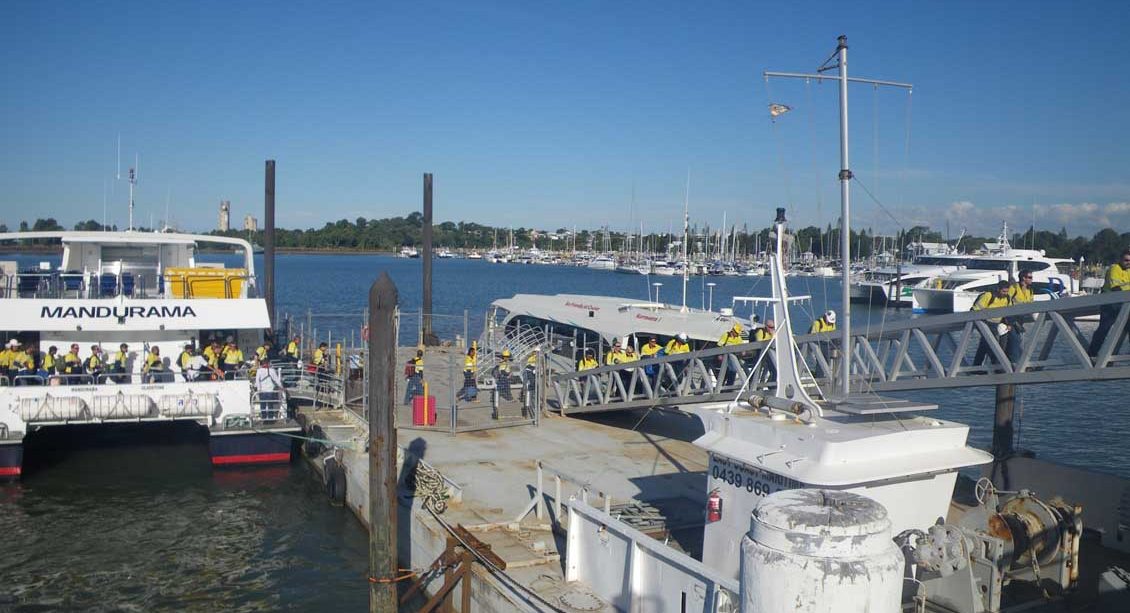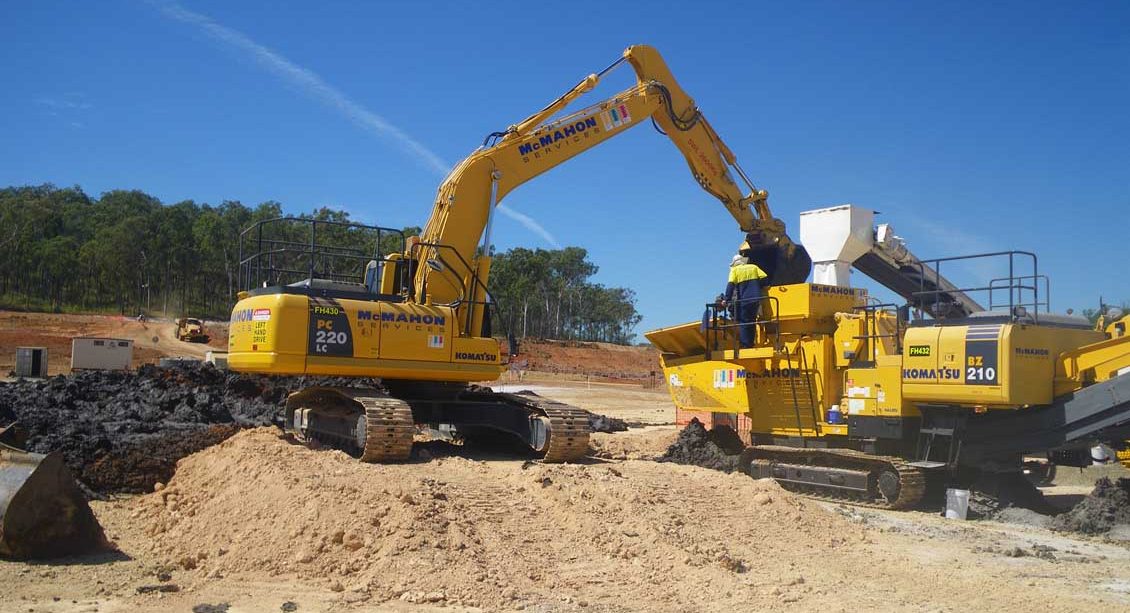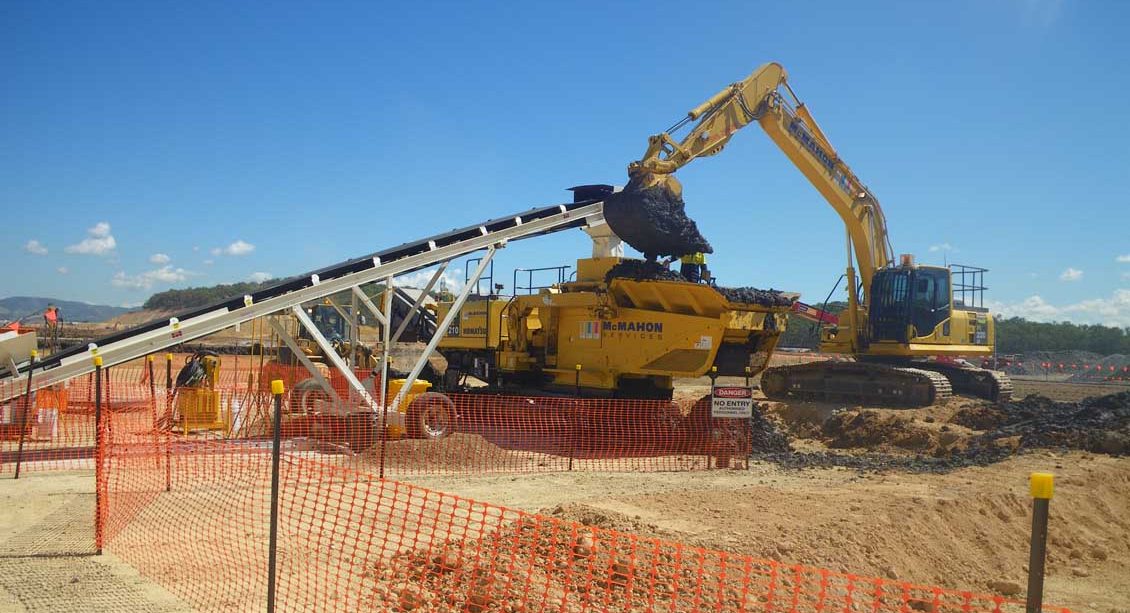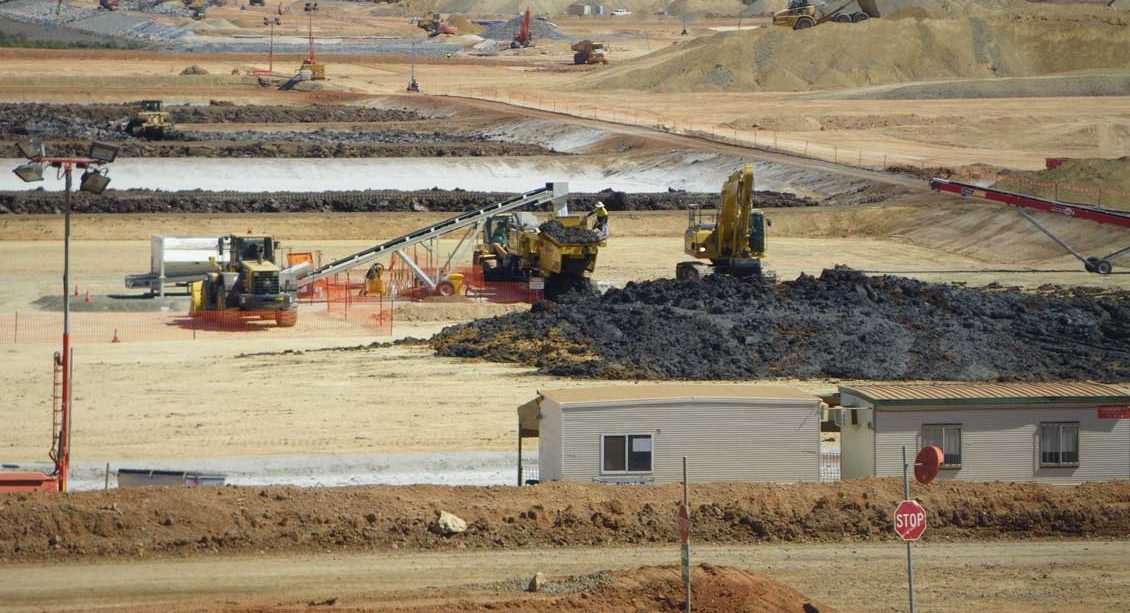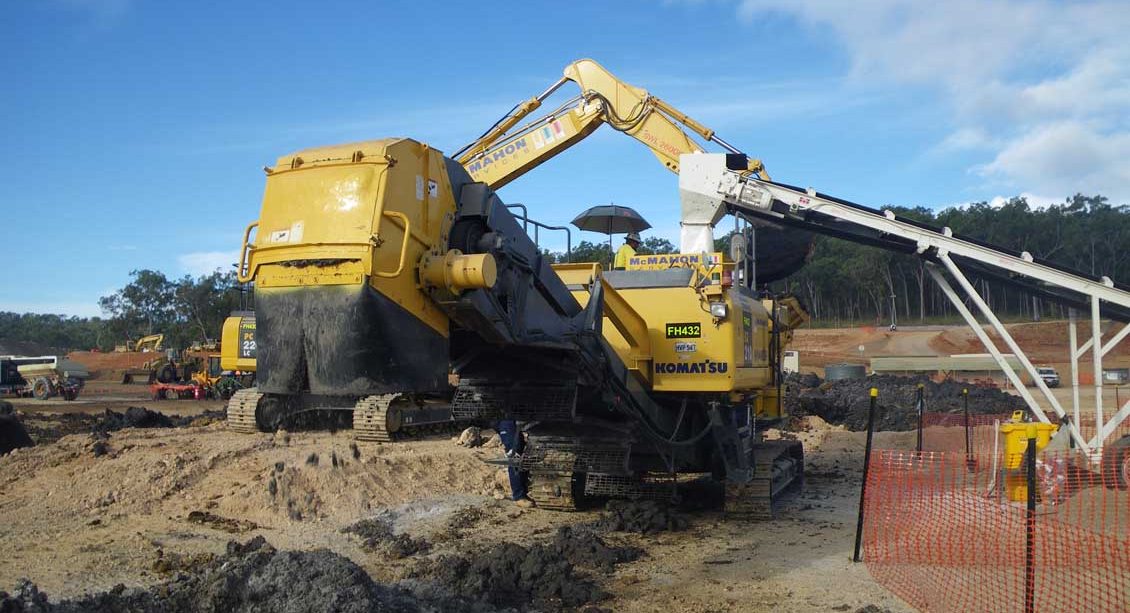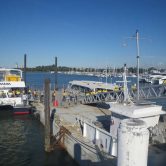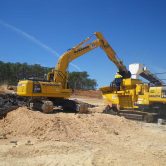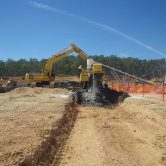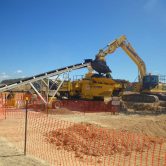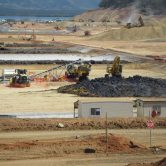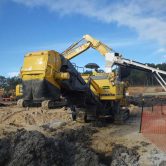Project Overview
Processing and treatment of approximately 15,000 cubic metres of Acid Sulphate soils on Curtis Island.
Bechtel’s highly anticipated Australia Pacific LNG Project will see the creation of a new, long-term gas processing and export industry in Queensland. Australia’s largest construction project on record is valued at over $20 billion and will create up to 6,000 direct jobs during the peak construction phase and 1,000 jobs during the operation of the Project.
As part of the project, McMahon Services was contracted by the Fulton Hogan McCosker Joint Venture (FHMJV) to process and treat approximately 15,000 cubic metres of Potentially Acid Sulphate Soil (PASS) and Acid Sulphate Soil (ASS) material.
Treatment of the PASS / ASS material was required as a first step in preparation for the construction of the LNG facility on Curtis Island.
McMahon Services has extensive experience in handling difficult material and the PASS / ASS material was no different. It was known that the PASS / ASS material was wet/sloppy marine sediment and that the acidity within the PASS / ASS was highly heterogeneous. McMahon Services developed a test trial to demonstrate the effectiveness of the system, which centred on the specialised Komatsu BZ210-1 Reterra G-Mode.
The Reterra has been used by McMahon Services for numerous soil and sludge treatment projects, so combining this experience with specialised machinery led to a successful trial outcome and the subsequent awarding of the contract.
To treat the PASS / ASS material the project team adopted an innovative method of adding a calculated dose of aglime (calcium carbonate) to the material, providing a more efficient and cost effective method of treatment.
The developed treatment system was a modification of the Reterra in order to dose the PASS / ASS material with the neutralising reagent (aglime) at a relatively high ratio. Instead of using the Reterra’s own reagent dosing system, an external feed hopper and conveyor system was developed to dose the aglime. This was operated using a radio controlled system which meant fewer operator requirements and safety.
The Reterra is specifically designed to mix materials together. It is comprised of a soil cutter, three flailing hammers and an after-cutter which allow a very high level of interaction between the material required to be treated and the reagents used for the treatment. The design of the Reterra also allows materials ranging from free flowing sand to wet heavy marine sediments to be processed at relatively high rates, in order to meet the strict construction schedule deadlines.
A team of seven from McMahon Services’ Civil Division were mobilised to Curtis Island to undertake the works. Prior to works commencing, the project team established the site including building rubble pads and drainage ponds. The next step was to assemble the conveyors and feed hoppers as part of the treatment system ready for PASS / ASS treatment. The Reterra was then moved into position, along with a 22 tonne excavator into the loading position and 17 tonne loader to remove the treated material.
The team worked hard to stockpile the PASS / ASS material under difficult conditions. Before the treatment could begin as specified by the project environmental consultant, the plant and equipment underwent a dry run to simulate the operation and check the operating systems. Once a risk analysis of the site was performed and a JSA developed, production started using the specified dosage rates of aglime.
The project team was presented with several challenges when treating the PASS / ASS material, which were all successfully overcome using innovative methods. Large rocks hidden in the PASS / ASS material could potentially block the feed system of the Reterra, requiring the team to stop and remove the material. In addition geo textile mats and other foreign objects present within the PASS / ASS material could lead to blockages and reduced production rates, however, these issues were overcome by modifying the operation of the Reterra to allow the required production rates to be obtained and removing the foreign objects.
On-going quality hold points were critical for aglime dosing procedures as the density of the lime changed with varying weather conditions. Aglime moisture levels vary, therefore potentially causing inconsistent dosage of the PASS / ASS material with the aglime. To overcome this, the aglime dosage system was constantly calibrated to ensure the amount of aglime added to the PASS / ASS material was in the correct ratio.
The treated PASS / ASS material was then moved using a loader provided by the client into individual 250 cubic metre stockpiles. All stockpiles were given an identification number and tested in accordance with the required specification. Verification samples taken from the treated PASS / ASS material by the environmental consultant showed that all treated stockpiles obtained the required target, so the inherent heterogeneity of the acid within the PASS / ASS material was effectively neutralised with the system developed by McMahon Services.
The aim of this project was to successfully treat 15,000 cubic metres of PASS / ASS material in the time required. This was achieved and many of the technical challenges presented were overcome. The highly variable acid content within the material was neutralised using aglime and was completed within the tight time frame to ensure construction of the LNG plant could be undertaken according to the construction schedule. The project was also delivered with zero Lost Time Injuries and to the highest satisfaction of the client and all stakeholders involved.

